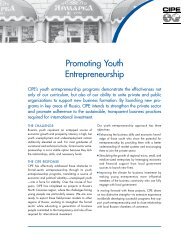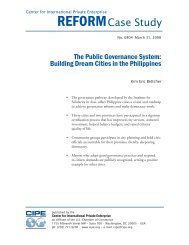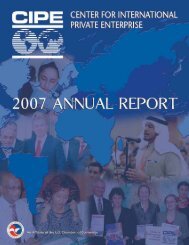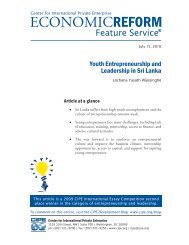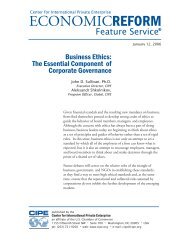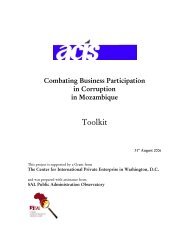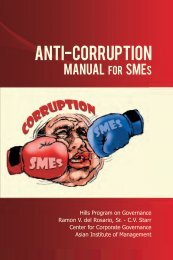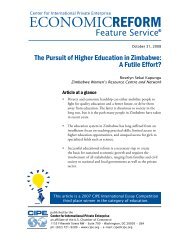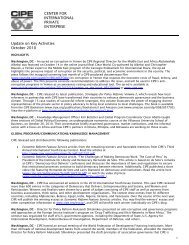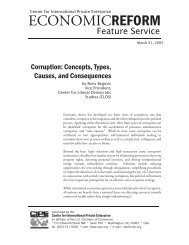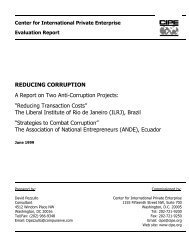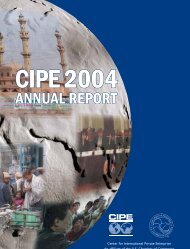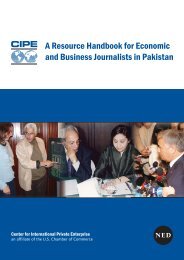Responsible Business Guide: A Toolkit for Winning Companies
Responsible Business Guide: A Toolkit for Winning Companies
Responsible Business Guide: A Toolkit for Winning Companies
You also want an ePaper? Increase the reach of your titles
YUMPU automatically turns print PDFs into web optimized ePapers that Google loves.
RBG<br />
<strong>Responsible</strong> <strong>Business</strong> <strong>Guide</strong>: A <strong>Toolkit</strong> <strong>for</strong> <strong>Winning</strong> <strong>Companies</strong><br />
RBF Pillar 2: Principles and Values<br />
<strong>Business</strong> values and principles of a company are central to its CSR strategy. Company<br />
claims of good behavior, when not supported by evidence, may actually harm business<br />
prospects over the long term.<br />
Policies are Values in Action<br />
Many companies consider a values statement to offer the best picture of the organization’s<br />
philosophical grounding. To incur the trust of its customers and critics, a company and all<br />
of its employees must be seen to openly espouse those values at all times. This demonstrates<br />
an understanding of moral priorities, the conviction to do what is right, and the will to take<br />
a stand on the part of an organization. Together, these qualities demonstrate a company’s<br />
resolve to be responsible, which leads to trust. Values range from globally accepted standards<br />
such as honesty and fair dealing to locally relevant ones, particularly those that relate to<br />
gender attitudes, social hierarchies, and power relationships. In cultures where there is a<br />
tendency to display loyalty to family and close relations above other values, a business<br />
must work particularly hard to be trustworthy.<br />
Trust comes on foot and<br />
leaves on a horse.<br />
Chinese proverb<br />
Often the pressure to accommodate influential stakeholders is<br />
hard to resist because of the perceived threat that it may mean<br />
losses <strong>for</strong> a business – or worse. This threat particularly affects<br />
small and medium enterprises, who feel they are weak in the<br />
face of powerful political <strong>for</strong>ces in society.<br />
In fact, the risk of being manipulated by powerful interests is greater when a business is<br />
isolated from its clients or consumers and does not enjoy a wider circle of trust. <strong>Companies</strong><br />
who are known <strong>for</strong> their integrity and their civic responsiveness are relatively secure and<br />
are better able to resist the pressures that threaten their values.<br />
The lesson, there<strong>for</strong>e, is two-fold. One, a company must be clear about its values and<br />
articulate them in a way such that everyone associated with its business processes<br />
understands them without any confusion. And two, these values must be distilled into<br />
policies and procedures that can be shown to work reliably and equitably without exception.<br />
In a way, converting values into policy and practice is perhaps the most crucial milestone<br />
on the road to responsible business. It is also a process only decision-makers can lead.<br />
<strong>Responsible</strong> <strong>Business</strong> Initiative 27



